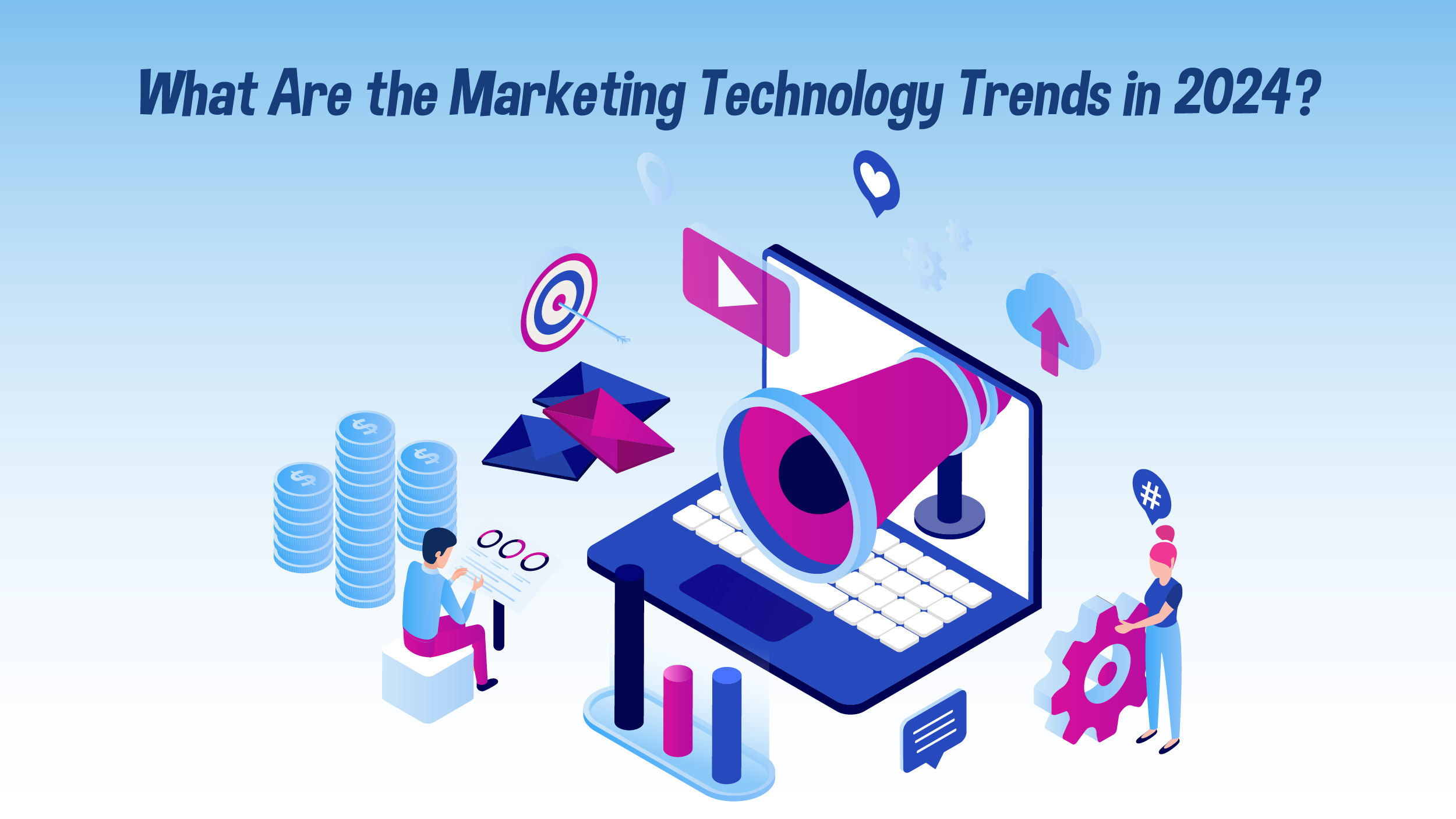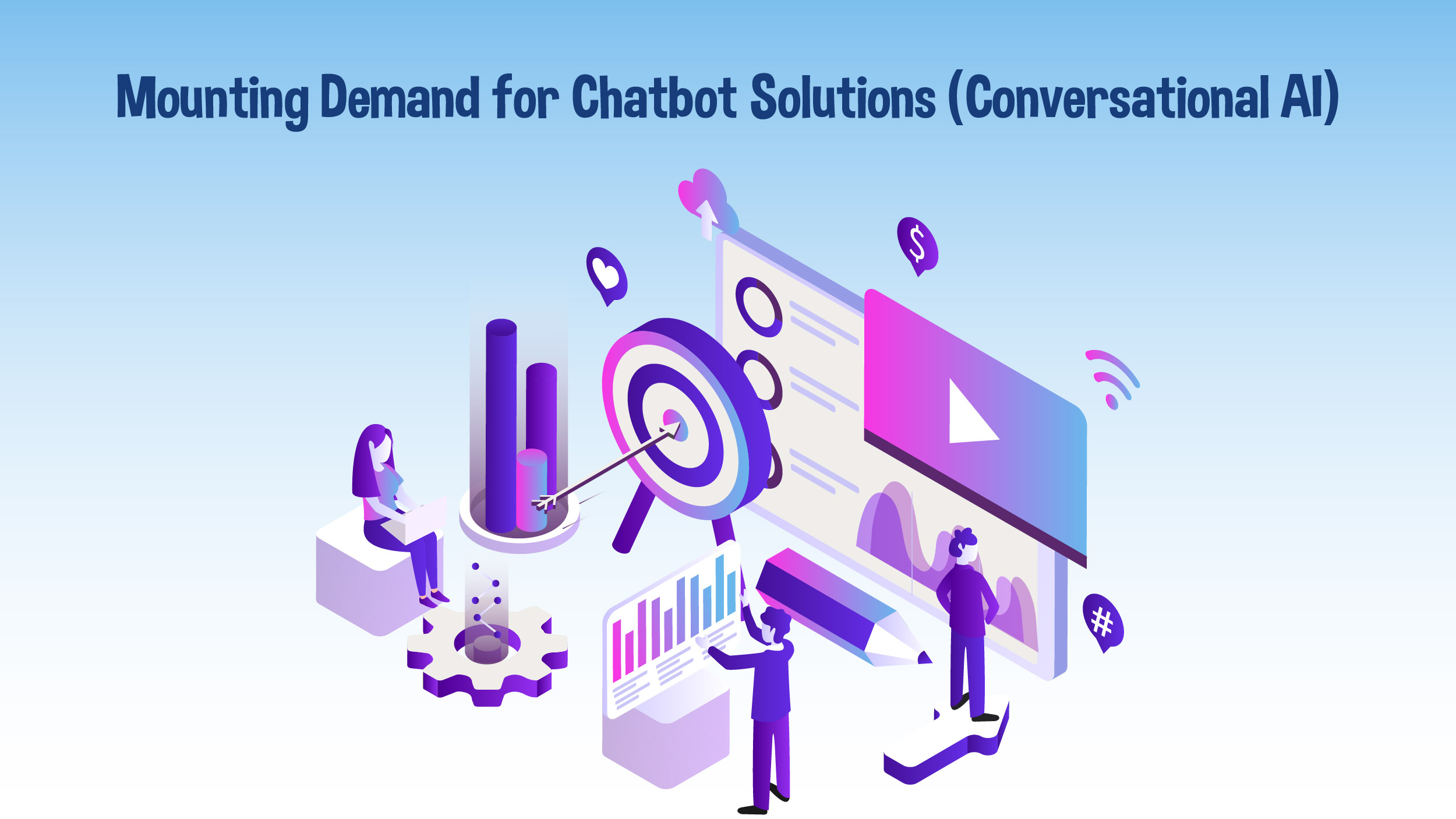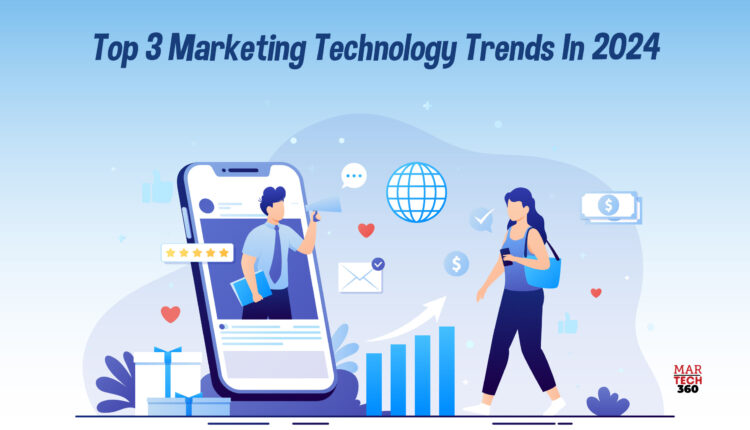The year 2024 is likely to witness significant changes in marketing, fueled by advancements in technology, data privacy concerns, the rise of AI, and shifting consumer demands. As third-party cookies become obsolete, companies will increasingly rely on first-party data and self-service advertising platforms. Content marketing will continue to transform, with greater integration of AI influencing how businesses connect and engage with their target audiences. Furthermore, marketing technology tools play a pivotal role in leveraging big data to refine pricing strategies, enhance customer experiences, and optimize overall marketing efforts. Let’s explore the key marketing technology trends that will shape the upcoming year.
What Are the Marketing Technology Trends in 2024?
 Here are three marketing technology trends in 2024 that are driving its rapid adoption.
Here are three marketing technology trends in 2024 that are driving its rapid adoption.
Big Data
Big data is making substantial advancements in marketing technologies, contributing to elevated standards in various aspects. The improvement is evident in the heightened quality of sales leads, enriched sales lead data, enhanced accuracy of prospecting lists, more effective territory planning, increased win rates, and the development of more sophisticated techniques for engaging decision-makers.
By harnessing the power of social media platforms and data analytics, big data proves instrumental in enhancing marketing technology. It plays a crucial role in refining pricing tactics, elevating customer experiences, and optimizing overall marketing plans. Moreover, big data facilitates the development of sophisticated algorithms, fosters the integration of diverse data sources, and contributes to the design of more advanced marketing tools and technology.
Big data can be applied in marketing to outline better pricing strategies, enhance territory planning, create intricate and advanced algorithms, and leverage social media platforms and data tools. To cite an instance, the Hadoop Big Data Analytics sector has grown exponentially. The open-source framework Hadoop has revolutionized how businesses handle and analyze massive amounts of data.
Furthermore, big data can assist companies in developing more specialized and focused marketing efforts that can provide prospective customers with more pertinent material. Predictive analytics, which may be created using big data, can assist organizations in predicting future trends and anticipating changes in customer behavior, enabling them to modify their marketing tactics accordingly.
AR and VR as Weapons for Marketers
Over the past few years, augmented reality and virtual reality have become significant marketing technological trends. Marketers can utilize augmented reality technology to place a digital layer over the actual environment, giving customers a new and intriguing way to connect with a product or brand. A furniture retailer might, for instance, develop an augmented reality (AR) software that enables users to virtually place furniture in their homes to see how it would look and fit before making a purchase.
Similar to this, marketers can apply virtual reality (VR) to provide customers with immersive experiences that take them to a different setting. For instance, an automaker could develop a VR experience that would let customers thoroughly examine a new car model even if it isn’t on the market at the time.
Also Read : Sales Analytics Software: Your Ultimate Guide for Strategic Business Growth
Both technologies can assist businesses in giving their consumers distinctive and memorable experiences, which can increase customer loyalty and engagement. The use of AR/VR technology can help enhance customer experience considerably.
When it comes to forming meaningful and long-lasting connections, VR and AR are also evolving to improve customer experience (CX). In fact, CX is the top priority for businesses looking to increase their technology spending in 2023 by an average of 24%, with 65% of businesses wanting to do so, according to Metrigy data.
Additionally, targeted marketing strategies and product development can be supported by the information gathered from these interactions. In general, virtual and augmented reality possess the potential to change how marketers interact with consumers and promote their companies.
Mounting Demand for Chatbot Solutions (Conversational AI)
 With growing trends and inventions of new technologies, businesses are increasingly investing in chatbots for smooth customer interaction. Unfortunately, many small and medium-sized businesses avoid using this marketing technology strategy. This, in turn, results in customer outflow and zero customer retention.
With growing trends and inventions of new technologies, businesses are increasingly investing in chatbots for smooth customer interaction. Unfortunately, many small and medium-sized businesses avoid using this marketing technology strategy. This, in turn, results in customer outflow and zero customer retention.
Chatbots are digital tools and also a great marketing technology solution, that significantly helps in expanding contacts. It is also a great tool for analyzing and collecting valuable information/data from customers.
In 2024 and beyond, there will be an upsurge in the implementation of chatbot tools. Many companies are actively investing time and effort in making chatbots even more realistic. This is to create a greater and much better illusion of human communication.
Improvements in AI and ML are predicted to make chatbots considerably more human in the next five years. One of the most interesting developments in MarTech is the emergence of voice bots, such as Google Assistant, Microsoft Cortana, and others, which experts may use to gather more customer inquiries and improve conversion rates.
More than 800 million users in over 190 nations use chatbots to carry out a variety of tasks in 2023. E-commerce, retail, healthcare, BFSI, real estate, education, and travel have all been at the forefront of using conversational AI technologies. As a result of using chatbots, interactions with customers and conversations have become significantly easier for businesses. Customers are favoring conversational commerce more frequently since it allows them to shop whenever it suits them best.
Winding Up
Marketing technology has become an indispensable tool in today’s fast-paced digital landscape. As we have explored the trends and advancements that are shaping the industry, it is clear that marketers must embrace technology to stay relevant and competitive Digital technologies already dominate the environment in which we live; marketing technologies are merely a more significant addition to this category.
The rapid evolution of marketing technology offers businesses unprecedented opportunities to connect with their target audience, drive engagement, and ultimately achieve their marketing objectives. From artificial intelligence and data analytics to automation and personalization, these technologies empower marketers to make data-driven decisions, optimize campaigns, and deliver personalized experiences at scale.


Comments are closed.